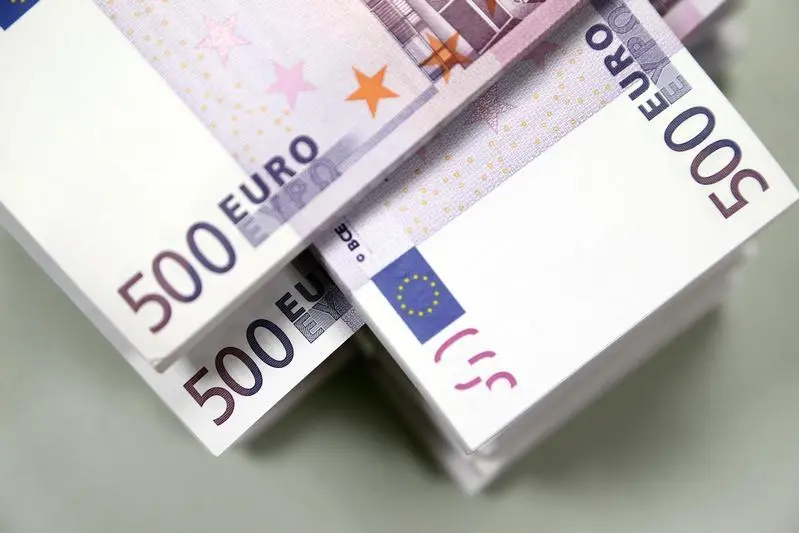PHOTO
ROME- Italy plans to start talks with the European Commission to extend by up to 24 months a state guarantee scheme designed to help banks shed problem loans, two people close to the matter said.
Italy's "GACS" state guarantee scheme is now set to expire in mid-June, depriving the industry of an effective tool to deal with bad loans just as it braces for a wave of pandemic-related soured debts.
Rome wants to agree with the EU a one-year extension that could be renewed for a further 12 months, the people sources said.
Since its introduction in 2016, the programme has helped Italian banks dump 96 billion euros ($108.90 billion) in bad debts - a third of overall disposals over the period - according to Banca IFIS data.
Italian banks are expected to offload another 30 billion euros tapping state guarantees once the program is renewed, based on industry projections.
Under the scheme, banks can buy a guarantee from Italy's Treasury at market prices to back the least risky notes when selling bad loans repackaged as securities. This reduces the risk for buyers and helps banks fetch a better price.
Complicating discussions, Eurostat is evaluating whether such guarantees should be considered as public debt, which would add 11-12 billion euros to Italy's 2.68 trillion euro debt pile, a third person separately said.
Eurostat's decision would affect also Greece, which has replicated Italy's scheme under the name "Hercules".
To help its banks deal with the legacy of a deep recession that turned almost a fifth of all loans sour, Italy introduced its programme after lengthy negotiations with Brussels to ensure compliance with EU state aid rules.
In seeking the extension, Rome has rebuffed market demands to widen the scheme to include "unlikely-to-pay" (UTP) loans.
Unlike bad loans, UTPs are not yet in default and could be recovered by returning borrowers to health.
The Treasury worries that including UTPs would lead rating agencies and investors to treat them as bad loans, tilting borrowers over the edge.
($1 = 0.8815 euros)
(Reporting by Giuseppe Fonte and Valentina Za Editing by Tomasz Janowski) ((giuseppe.fonte@thomsonreuters.com; +390680307711;))





















